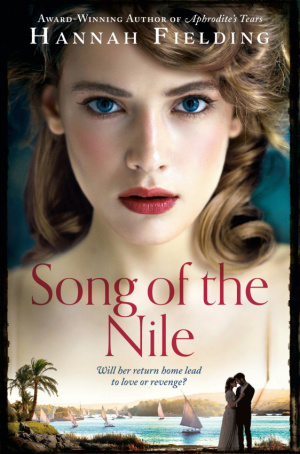A heroine struggling to trust
A heroine struggling to trust
A heroine struggling to trust
-
Hannah
-
Hannah

When she was eighteen, Aida lost her father. This would have been devastating enough, given how much she loved him and the fact that she had already lost her mother, but the manner of his death was unbearable. Ayoub El Masri was wrongly accused of the theft of an antiquity, a crime that went entirely against his ethics, for he believed strongly in the preservation of Ancient Egyptian artefacts. At his trial, he was found guilty – and the shock and horror brought on a fatal heart attack, right there in the courtroom.
Eight years later, Aida returns to Egypt, having fled to England to escape the scandal and spent the war years working as a nurse. She has grieved her father, but she has not let go: for the day her father was arrested, the identity of the real culprit was revealed to Aida. I write:
Now that she was back in Luxor, she would do her utmost to find the proof she needed to confront the coward who had let her father – his neighbour and long-time friend – go to jail. The same man who had ultimately caused Ayoub’s death.

Song of the Nile: available to buy now
Aida has learned that Kamel Pharaony brought the antiquity, a statue of Queen Nefertari, to their house on the afternoon that Ayoub was arrested. A maid claimed that Kamel gave her the statue and told her to put it in Ayoub’s study – where it was discovered during a search by the authorities.
An old family friend is not convinced at all by this story; he tells Aida that while he believes Ayoub was innocent, he cannot imagine that Kamel is to blame. Aida knows that he may be right – after all, she has no proof. But she simply cannot shake her distrust of Kamel Pharaony, and by extension his son, Phares.
The problem is: she and Phares were once good friends, and quickly an attraction springs up between them. But whatever Phares does, Aida struggles to trust him. He is the son of Kamel; he may have been part of the plot to frame her father. He owns the neighbouring estate and therefore may have an agenda to gain her land. Plus, he seems very popular with the ladies; perhaps he is cheating.
Ultimately, how can Aida ever consider linking her life to someone she can’t trust?
But as Ralph Waldo Emerson wrote, ‘Our distrust is very expensive.’ A life lived in fear, wary of betrayal, seeing the potential for wrongdoing in everyone – this is not a life well lived. There is no peace in such a life, no healing. No ability to love oneself, to give and receive love.
Ultimately, as Ernest Hemingway put it, ‘The best way to find out if you can trust somebody is to trust them.’ If Aida is to have any hope of a happy ending, she will have to take the plunge… and trust. In life. In love. In Phares.
Photo credit: Majdanski/Shutterstock.com